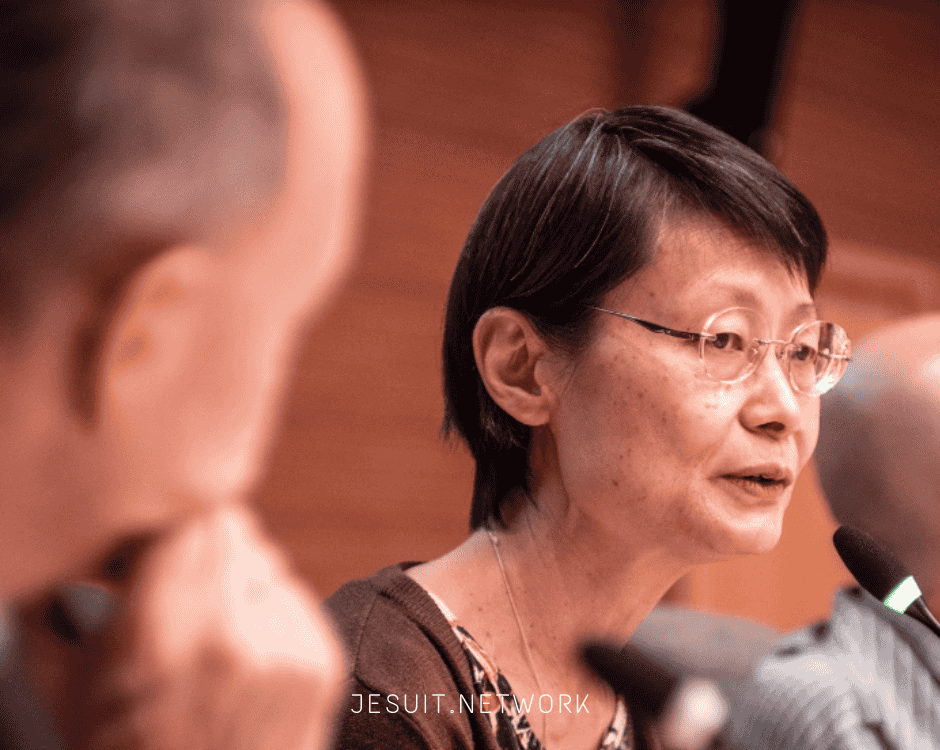Este sitio web utiliza cookies para que podamos ofrecerle la mejor experiencia de usuario posible. La información sobre cookies se almacena en su navegador y realiza funciones como reconocerle cuando vuelve a nuestro sitio web y ayudar a nuestro equipo a comprender qué secciones del sitio web le resultan más interesantes y útiles.
Ignatian Family Teach-In 2014: Witnesses of Hope and Transformation
This past weekend at the Ignatian Family Teach-In for Justice held in Washington DC, I went up to Padre Melo, one of the keynote speakers, to express my admiration for his work as a human rights activist and director of Radio Progreso in Honduras. He gave me a long hug, said thank you to me and I thought to myself what a kind and gentle man.
A few minutes later he walked up to the podium in front of the more than 1,300 social justice advocates gathered together from different Jesuit schools and organizations to commemorate the lives of the six Jesuit priests and laywomen killed in El Salvador 25 years ago. Padre Melo’s voice cut into the silence, and the power of his call left no doubt that this kind and gentle man was an adamant defender of his people and of those who have struggled and continue to struggle in the face of poverty, inequalities, violence and oppression.
“The memory of the martyrs is a thorn in the conscience of our people. And the celebrations to remember them constitute instruments of struggle and subversion of a system that strives to consume people into oblivion.”
He offered several teachings that we can carry with us following the deaths of the martyrs and encouraged us not to take their legacy in vain: “The martyrs’ deaths show us that dialog and negotiation continue to be privileged instruments to find answers to the serious conflicts facing our societies”. However, he went on to say that dialog and negotiation are not enough on their own; they have to be accompanied by the political pressure and demands from different sectors of civil society, including universities, schools and organizations, working together to make their voices heard.
The Ignatian Family Teach-In is a privileged space for this type of collaboration and transformation to take root. Young women and men, inspired by Ignatian values and identity, gather together for a weekend and are inspired by individuals like Padre Melo who have dedicated their lives not just to speaking about justice but to truly acting for justice, becoming witnesses of transformation in the process. Participants also have the opportunity to be inspired by their peers, high school and university students who are committed to raising awareness and encouraging their legislators to act on key issues, such as immigration reform, climate change, and human rights in Central America.
May the words of Padre Melo and the legacy of the martyrs continue to settle in our hearts as we head back to our high schools, universities, parishes, and organizations this week.
“We cannot stay calm. The anniversary of the martyrs fills us with the memory and the smell of their blood which cannot allow us to rest while the conditions that shook their lives and caused their deaths are still present.”
To learn more about the organizers of this conference, take a look at the Ignatian Solidarity Network’s website. Padre Melo’s original talk in Spanish can be found here. Photo is from the Ignatian Solidarity Network.





